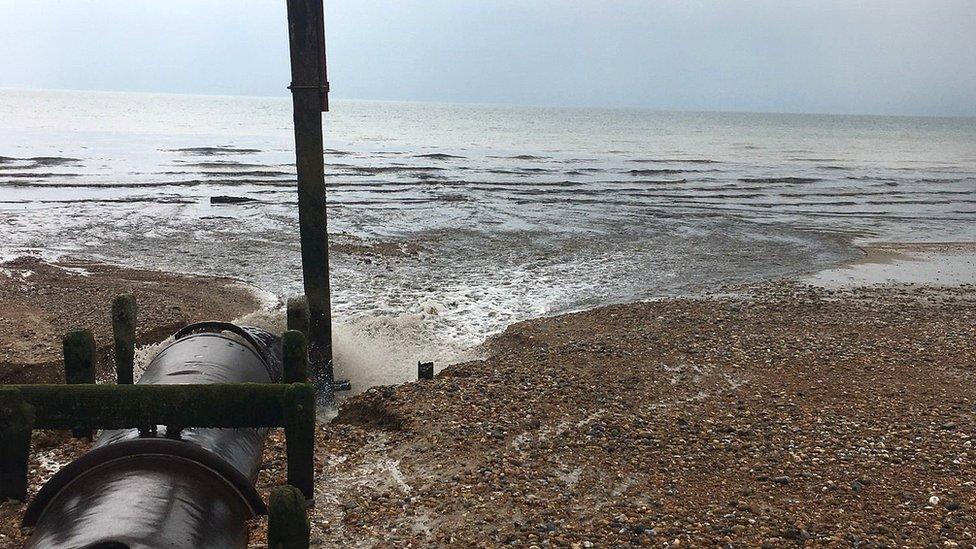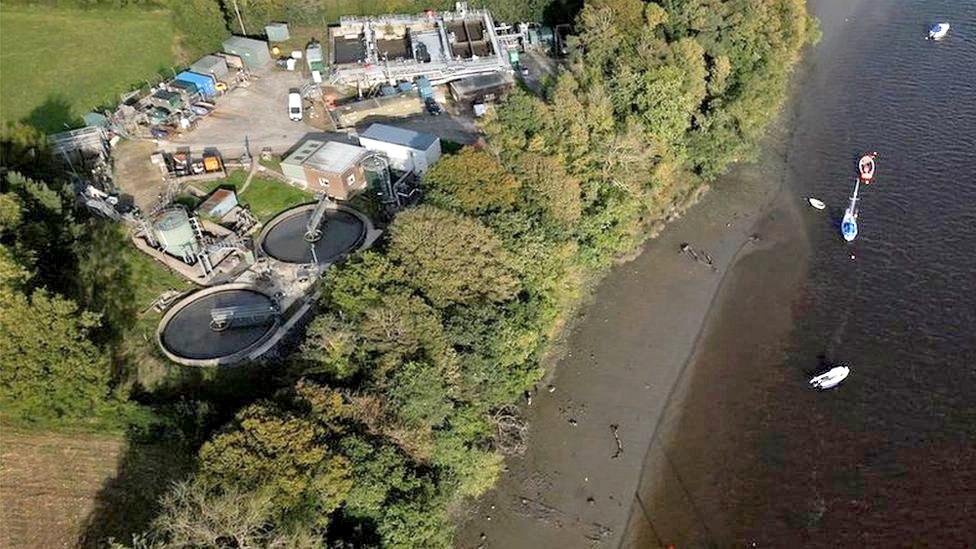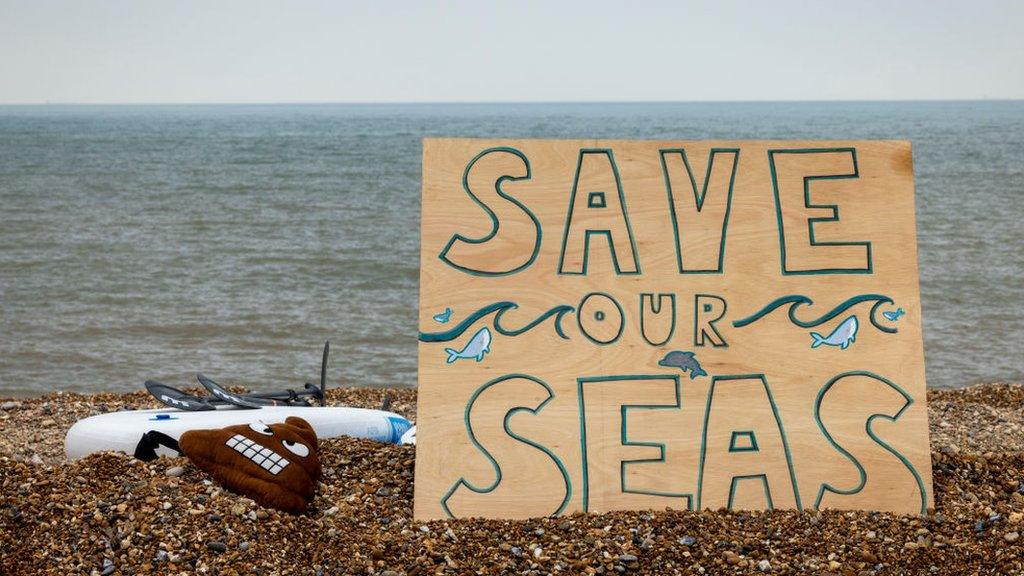Sewage spill monitors extend reach to cover all England
- Published

All of England's storm overflows are now electronically monitored, making it easier to hold water companies to account, the government has announced.
The monitors, called EDMs, report in real time when water companies are releasing sewage into rivers and seas.
There's been a steady increase in the number of storm overflows being monitored in the last decade.
Sewage is only supposed to be spilled after heavy rain, but last year there were 1.75 million hours of discharges.
There are close to 15,000 storm overflows in England and the government set England's nine water companies the target of having them all monitored by the end of 2023.
"The completion of storm overflow monitoring is a major step forward in better protecting our precious waterways, as well as the communities and wildlife that rely on them," said Environment Secretary Steve Barclay.
While many of the companies comfortably reached the goal of total monitoring, the England-wide target was achieved after Thames Water, the UK's largest water company, recalculated how many outflows form part of its network.
Last year it reported that just 61% of its 777 overflows were monitored.
After the BBC queried how it had managed to reach 100% this year, Thames Water said that as well as adding monitors it had found after closer examination that 158 of the overflows it reported in 2022 did not in fact need to have a monitor installed. In these cases, a Thames spokesman explained, outfalls were discovered to no longer be connected to the sewage network or to be duplicates of other outfall permits.
The Environment Agency, the regulator, said it was happy with Thames Water's assessment that it now has just 619 outflows. It is responsible for receiving the EDM data and investigating illegal spills.
The EA's executive director John Leyland said of complete monitoring across England: "This increased transparency will allow the Environment Agency to better tackle illegal discharges from storm overflows.
"We are dedicated to investigating those that breach their strict permitting conditions."

The EA is currently conducting what it calls a "major criminal investigation" into whether sewage treatment plants have been spilling before they reach full capacity.
James Wallace, chief executive of campaign group River Action UK, said there was still work to be done to ensure water companies were held properly to account over sewage spills.
"A dozen years of cutbacks on Environment Agency and (Water Services Regulation Authority) Ofwat budgets have left the regulators toothless while water companies pollute without fear of prosecution," he said.
"Until the government properly resources the regulators with the necessary staff and funding, these claims of improvements are a meaningless slap in the face to those witnessing the demise of their precious rivers and water security."
Under permit rules, storm overflows are only supposed to be used to prevent the system backing up after heavy rain. But analysis of the water companies' own EDM data suggests they are being used at other times too.
The BBC analysed EDM information from three water companies earlier this year and it suggested overflows were also being used in dry weather, which is illegal.
Though there is now more transparency, many of the water companies refuse to release their data to journalists and campaigners. It's also far from clear that greater awareness of sewage dumping has lead to improvements in water quality. This year the number of English bathing sites rated as unfit to swim rose to its highest level since a new rating system was introduced in 2015.
"Storm overflows are a design feature and act as a release valve after heavy storms," says David Henderson the chief executive of Water UK, the industry trade body.
"Water companies want them to operate as little as possible, which is why we are seeking regulatory approval to invest £11bn over five years - three times the current rate - to increase the capacity of our sewers and prevent much more storm water entering the system in the first place."
To pay for that investment the water companies have asked for customer bills to rise by more than £150 by 2030.
Related topics
- Published19 October 2023

- Published18 May 2023

